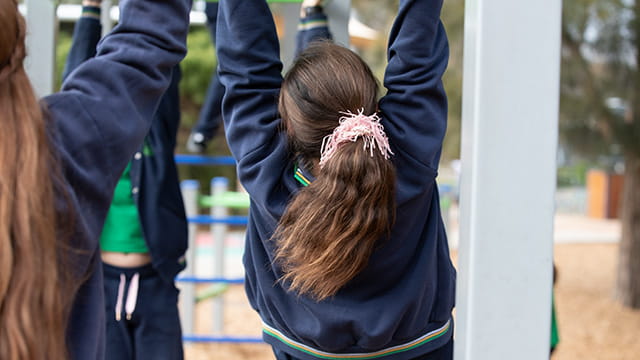What is risky play?
Risky play is any thrilling and exciting activity that includes some risk of injury, such as climbing, jumping, balancing and sliding. Risk taking in play can give children opportunities to challenge themselves, test limits, overcome fear, and explore boundaries.
How does risk taking in play support children’s mental health?
Risk taking in play allows children to develop decision-making skills, extend their limits and learn new life skills. When taking risks, children sometimes succeed and sometimes do not. When things do not go to plan, children work out different ways of doing things in the future, which builds resilience. Children then develop a sense of motivation to accomplish goals and master new challenges.
How can Be You support risk taking in play?
Taking risks in play can build children’s resilience, which is an important protective factor in positive mental health.
There are a variety of Be You resources that can support educators to encourage children’s risk taking in play.
The Learning Resilience domain and the Resilience and mental health Fact Sheet can give you ideas about how to provide children with opportunities to develop resilience through risk taking in play.
To reflect on
- How can you use Be You resources to facilitate children’s risk taking in play in your learning community?
- What mental health benefits have you seen when children take risks in their play?
- Share your story about risk taking in play at a Be You events.

